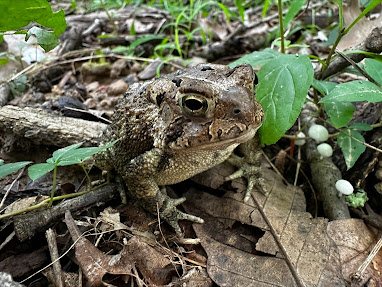The 2024 Solar Eclipse
By Wesley Roberts
The second solar eclipse within 6 months will be
visible in Nashville on April 8, 2024. Although we are not in the path of
totality, we can expect the sun to appear 95% covered by our moon. The
Nashville sky will become much darker than a normal day, and millions of people
throughout our area and North America will enjoy this astronomical event.
Many people understand what is happening. As the moon moves in its orbit around the Earth, it will pass directly between the sun and our planet. The shadow cast by the moon on to North America will move from southwest to northeast along a path from Mexico through to New England. Along the path of totality, where the moon appears to completely cover the sun, it will be as dark as nighttime for a few minutes and stars will appear in the daytime sky.
The 2017 solar eclipse casting darkness on the mid-day landscape (photo by Jenna Atma)
A most important aspect of understanding this
phenomenon is the accuracy of science. There are very few events that take
place in the future for which we can have near absolute certainty of their
occurrence. Science gives us the opportunity to make reasonable predictions to
which we assign confidence based on the fact that results are testable. For
example, the science of meteorology gives us reasonable expectations about
upcoming weather and the science of botany helps us to have reasonable
expectations that we can grow food. Neither of these is 100% definite. The
prediction of an eclipse is as close to 100% as we can get.
In the 4th century BCE, Chinese
astronomers began predicting eclipses accurately (with at least one king, Zhong
Kang, beheading two astronomers who failed to predict one). The observations of
a lunar pattern called the “Saros Cycle” was observed by ancient cultures
around the world and enabled the forecasts to proceed. Today we can accurately
state the eclipses that will occur for the next several thousand years.
As science is currently attacked from many
disciplines that include an unwillingness to accept its rigid protocols and
openness to revision based on data, the solar eclipse is a strong testament to
the power of this branch of knowledge. On April 8, 2024, this event WILL HAPPEN
(to be accurate, an asteroid of the “Don't Look Up” variety could strike, or a
few other cataclysmic events, but these are unlikely to the point of being
dismissible). As you are getting comfortable in your observation place, wearing
your safe eclipse glasses, finding yourself in awe of the power of this marvel
and counting the stars that almost magically appear in the daytime sky, be
aware of the values that scientific discoveries have added to the quality of
our lives. Most of all, enjoy this celestial show of shows and our unique
ability to understand it.
Check out the simulator below to see the 2024 Solar Eclipse's travel path!
https://eclipse2024.org/eclipse_cities/statemap.html
Wesley Roberts is retired from Metro Public Schools. He taught ecology, biology, and astronomy for 38 years.











